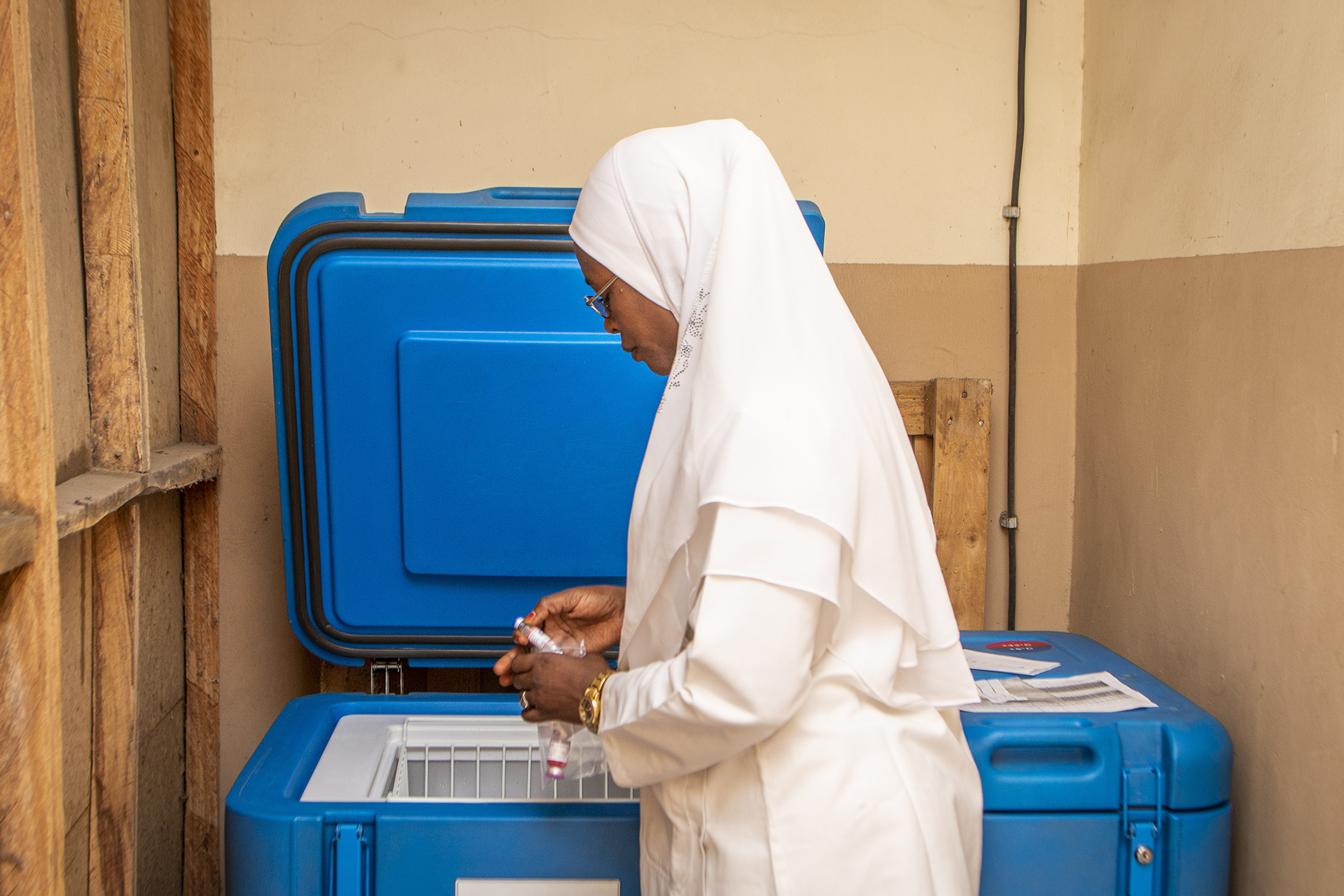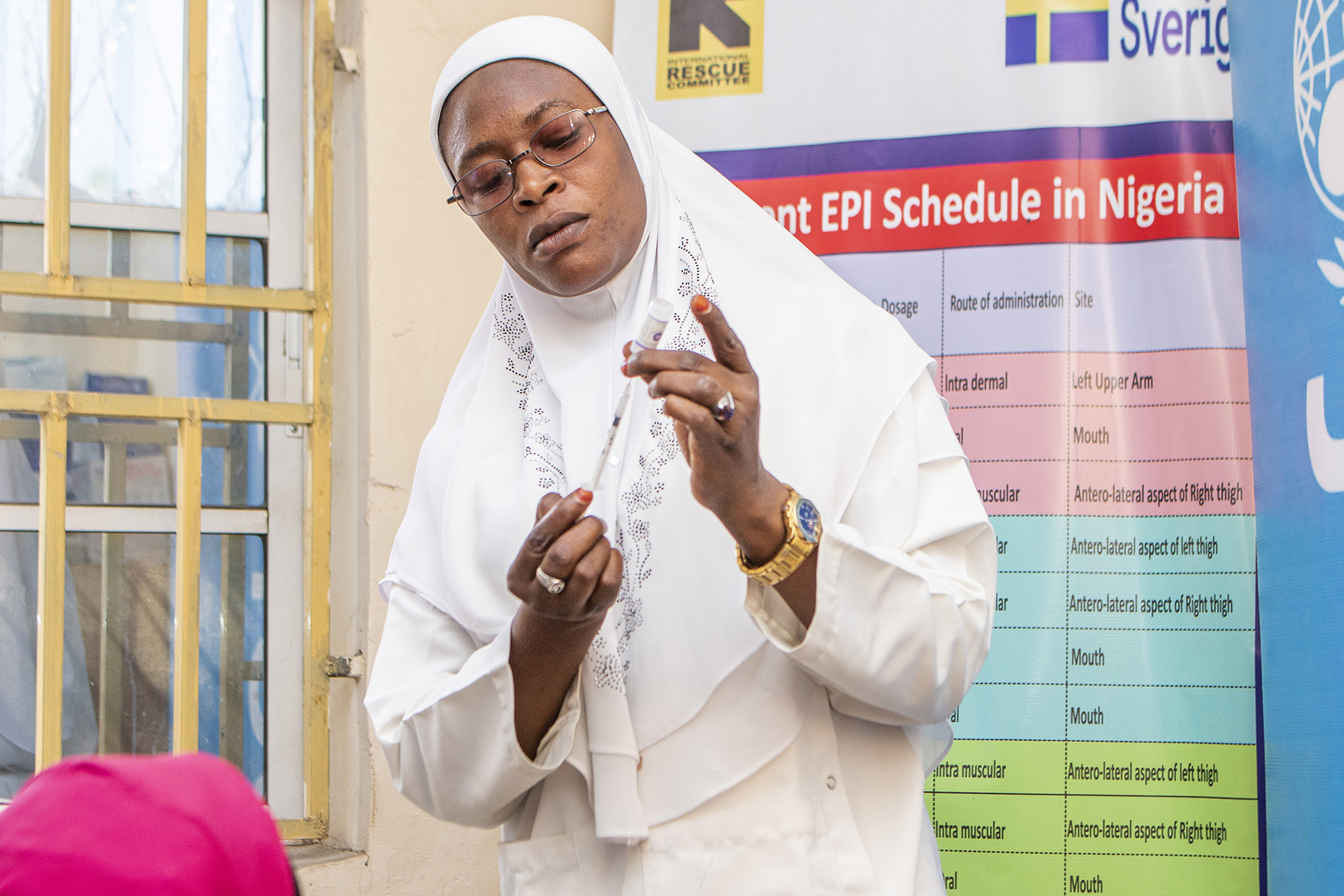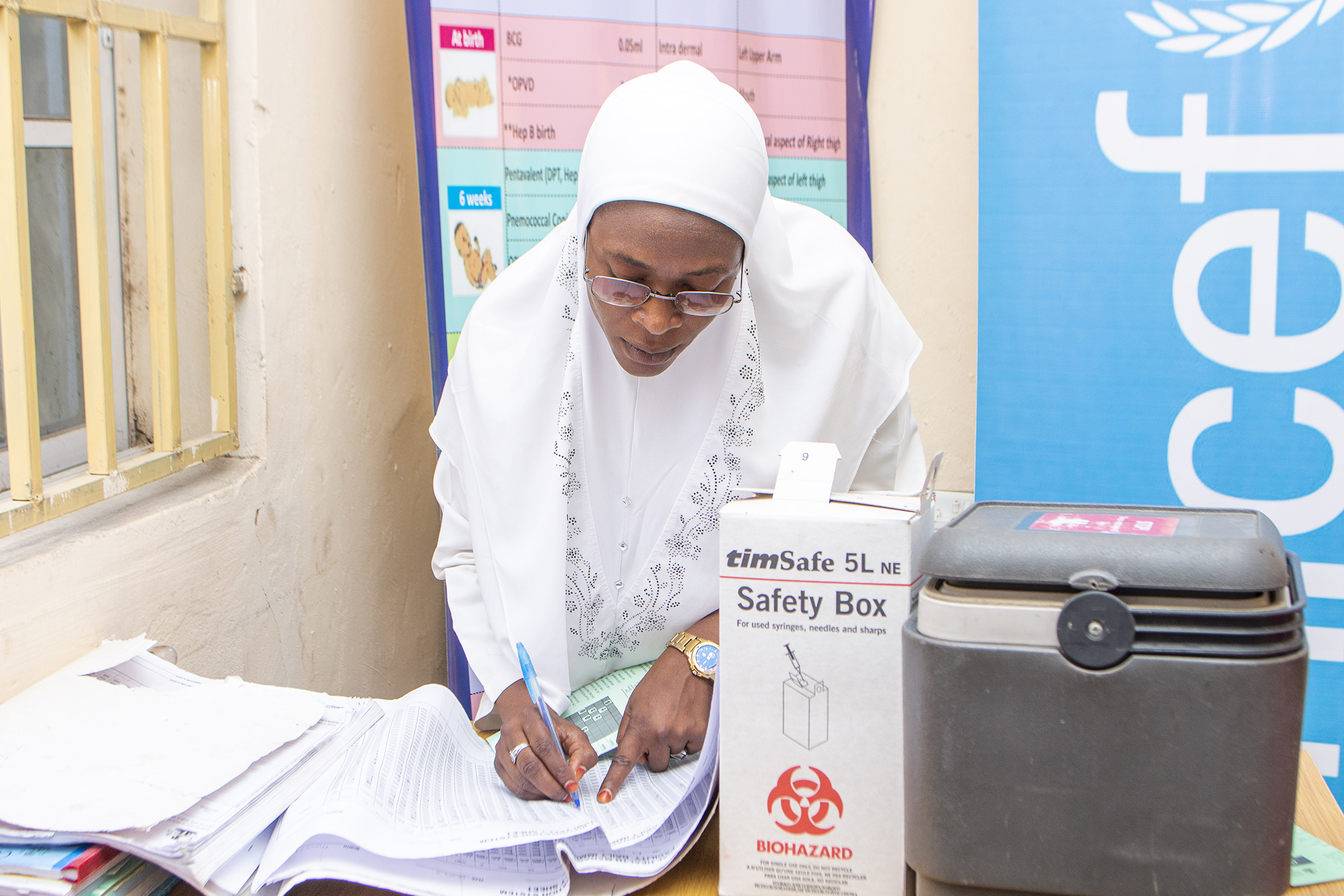When Yagana Maina, a health worker in Nigeria's Borno state, was educating community members on vaccinations, she was surprised to hear Abubakar, the father of a baby girl, say he would not vaccinate his daughter again.
The baby had already received a dose of the measles, mumps, and rubella vaccine (commonly referred to as the MMR vaccine), but Abubakar was concerned about its side effects.
“She is fine now, but she was crying after the vaccine and didn’t sleep that entire night,” Abubakar told Maina, adding that she also experienced temporary swelling.
Maina sat down with him to share more information about the vaccine, its potential side effects — including tenderness and swelling — and its importance. According to Maina, who is the routine immunization in-charge at Gwange 2 Primary Health Care in Maiduguri LGA, the fear of adverse events following immunization (AEFI) is a main deterrent for caregivers who choose not to vaccinate children under their care.
After speaking with Maina, Abubakar decided to continue vaccinating his daughter. Maina personally followed up with the family to ensure there were no side effects and continued to check in on them every month.
 Yagana Maina, a health worker in Nigeria’s Borno state, leads a team to educate communities about routine vaccinations.
Yagana Maina, a health worker in Nigeria’s Borno state, leads a team to educate communities about routine vaccinations.
The following year, in 2019, when Borno state was the most affected state by a measles outbreak in Nigeria, Maina ran into Abubakar as he was on his way to Mecca for a pilgrimage.
“He said, ‘All of the children have measles in the area, and my child is still healthy.’ He assured me he would pray for me during the pilgrimage. He said, ‘My sister, I am very impressed.’ When he returned from his travel, he bought me nice work shoes,” Maina told Global Citizen.
Maina, who conducts community outreach with a team of four colleagues, typically visits communities one to three miles away from the primary health center, where they are based.
While most people are familiar with vaccination, Maina said they may not understand the importance of it.
“I tell them it will protect the children throughout their lives and that the vaccine is safe and effective, and also protects the family,” she said.
In addition, Maina shares with families that the vaccine keeps children healthy, which helps parents save money by avoiding costly medical expenses.
 "Investment in immunization programs is one of the most reasonable things that any person, organization, or government can do with no regrets," Maina told Global Citizen.
"Investment in immunization programs is one of the most reasonable things that any person, organization, or government can do with no regrets," Maina told Global Citizen.
A 2022 study showed that 1 in every 3 families in Nigeria faced catastrophic costs after a child fell ill from disease (these costs were defined as exceeding 25% of the monthly household income).
Maina shared that parents often pass by the community health center just to say hello, thank her, and let her know their children are healthy.
“The impact I have on my community is the main reason I am very proud to be a routine immunization provider,” she said.
COVID-19’s Impact on Routine Vaccinations in Nigeria
According to a recent report by UNICEF, Nigeria has 2.2 million zero-dose children (children who have not received any routine immunization), making it home to the second-largest number of zero-dose children globally.
Between 2019 and 2021, the number of zero-dose children rose from 13 million to 18 million globally.
Chief of Health and HIV/AIDS at UNICEF Eduardo Celades told Global Citizen that progress on routine immunization slowed down during the COVID-19 pandemic, due to factors including stay-at-home orders, the limited bandwidth of the health system to respond to the pandemic and other concurrent public health crises, and an insufficient number of health workers.
When COVID-19 vaccines were made available, Nigeria integrated vaccine service delivery, meaning that the 72 million people who were vaccinated against COVID-19 had access to additional services, such as measles vaccination (26 million children were registered during this campaign) and birth registration (2.5 million children received birth certificates).
Celades, who said the high number of zero-dose children is concerning, also shared that this is “a good proxy of multi-dimensional poverty.” In Nigeria, 65% of zero-dose children reside in the poorest households, while the richest households host less than 4% of zero-dose children.
According to Celades, if a child has not received the first dose of any vaccination, this means they have not had contact with a primary health center, which also implies the child does not have adequate access to water, sanitation, and birth registration.
“This increase of zero-dose children and the persistent inequalities [between urban and rural children, for example] is still a major issue in Nigeria, which needs to be tackled,” he said.
The Investment Case for Routine Immunization
With the G7 Summit underway in Hiroshima, Japan, Celades said that additional investments are needed in routine immunization and primary health care.
“We need strong, resilient, gender-sensitive [primary health care] systems that have enough doctors and nurses, a continuous supply of vaccines and medicines, good data to inform decisions, good governance, and strong leadership to provide the services that women and children need,” Celades said.
Maina told Global Citizen that increased funding for routine vaccinations would support covering costs such as maintaining vaccine freezers and training frontline health workers. She said these investments are a no-brainer, given the priceless positive health outcomes that result from children being vaccinated.
“Investment in immunization programs is one of the most reasonable things that any person, organization, or government can do with no regrets, no matter the costs compared to the benefits,” she said.
The data supports this, showing that every $1 invested in vaccination delivers a $26 return on investment.
For families like Abubakar’s, that investment is priceless.
 Yagana Maina poses for a portrait at Gwange 2 Primary Health Care in Maiduguri LGA, Nigeria, where she is the routine immunization in-charge, on May 19, 2023.
Yagana Maina poses for a portrait at Gwange 2 Primary Health Care in Maiduguri LGA, Nigeria, where she is the routine immunization in-charge, on May 19, 2023.
The World's Best Shot is a profile series dedicated to sharing the stories of vaccine activists around the world.
Disclosure: This series was made possible with funding from the Bill and Melinda Gates Foundation. Each piece was produced with full editorial independence.


